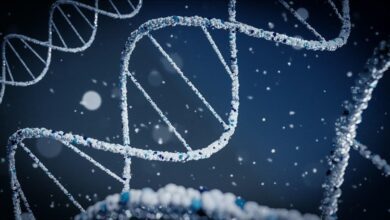Can Food Really Fight Cancer? Exploring Gerson Therapy in Mexico as an Alternative Treatment

A cancer diagnosis often marks the beginning of an emotional and physical battle—and not everyone chooses to fight it the same way.
While chemotherapy, radiation, and surgery remain the most common treatments in modern medicine, a growing number of patients look beyond conventional methods, seeking therapies that align more closely with their values, beliefs, or desire for natural healing.
One of the most talked-about alternative treatments over the past century is Gerson Therapy. Rooted in the philosophy that the body can heal itself with the right support, this method focuses on diet, detoxification, and nutrient intake.
And because of regulatory restrictions in many countries, especially the United States, more people are turning to clinics in places like Mexico to access this unique approach.
Let’s explore what Gerson Therapy involves, why Mexico has become a key destination for it, and what medical experts have to say.
What Is Gerson Therapy?
Gerson Therapy was developed by Dr. Max Gerson, a German physician who initially used it to treat migraines and tuberculosis in the early 20th century. However, he soon began applying the therapy to degenerative diseases, including cancer.
At its heart, Gerson Therapy is about restoring the body’s natural healing mechanisms by addressing what Dr. Gerson believed were the two main causes of disease: nutritional deficiency and toxicity.
The therapy’s regimen is both intensive and highly structured. It includes:
- A strict organic, plant-based diet: Patients consume meals free from salt, oils, and animal products. The idea is to supply the body with an abundance of nutrients while avoiding harmful additives and chemicals.
- Freshly pressed juices: Up to 13 glasses of raw juice—made hourly from organic fruits and vegetables—are consumed daily. These juices are meant to flood the body with enzymes, vitamins, and minerals.
- Coffee enemas: Administered up to five times a day, these enemas are believed to detoxify the liver and help the body eliminate waste and toxins more efficiently.
- Supplements: Including potassium compounds, digestive enzymes, and thyroid hormone, designed to support metabolic function and detox processes.
Supporters claim that this approach activates the body’s immune system, helping it target and eliminate cancer cells. While the therapy is rigorous, proponents believe that it offers a gentle and non-invasive alternative to standard cancer treatments.
Why Seek Gerson Therapy in Mexico?
Because Gerson Therapy is not approved by the U.S. Food and Drug Administration (FDA) as a cancer treatment, it cannot be legally offered as a full medical service in the United States or many other countries. As a result, a number of clinics have opened in Mexico, where regulations around alternative medicine are more flexible.
Facilities offering Gerson Therapy in Mexico often provide a full-service experience, allowing patients to undergo the therapy under medical supervision in a supportive and structured environment.
These clinics may also offer complementary treatments such as ozone therapy, hyperbaric oxygen therapy, IV infusions, or immune-boosting protocols that align with natural and integrative approaches.
Mexico has thus become a center for medical tourism for patients seeking alternative cancer care. Many individuals travel from the U.S., Canada, and Europe to receive this treatment in a setting that respects their choice for holistic healing.
What Does the Medical Community Say?
Despite its popularity in some circles, Gerson Therapy remains highly controversial. Medical authorities including the American Cancer Society and Cancer Research UK state that there is currently no scientific evidence proving that Gerson Therapy can cure cancer.
The therapy has not been subjected to large-scale, peer-reviewed clinical trials, and critics argue that anecdotal success stories should not replace evidence-based medicine.
The therapy also carries potential health risks:
- Frequent coffee enemas can cause dehydration, infections, electrolyte imbalances, or even bowel perforation if not performed correctly.
- The restrictive diet, while rich in nutrients, can lead to deficiencies if not carefully managed.
- Avoidance of conventional treatments may delay or prevent patients from receiving therapies that have been proven to improve survival rates.
Still, many patients report improved energy, reduced symptoms, and a better quality of life when following the Gerson regimen. This could be due to the nutrient-dense diet and detoxification efforts, though more research is needed to evaluate the effectiveness of the therapy as a cancer treatment.
Is Gerson Therapy Right for You?
Choosing a path through cancer is a deeply personal decision. While Gerson Therapy is not a substitute for evidence-based medicine, some individuals find it a compelling part of their healing journey—either as a complementary therapy or, in some cases, as a primary approach.
If you’re considering Gerson Therapy:
- Speak with your doctor or oncologist to discuss how it might interact with other treatments.
- Do your research to understand the full scope of what’s involved.
- Seek reputable clinics that offer supervised care and are transparent about their protocols.
Ultimately, the goal should be to create a treatment plan that not only addresses the illness but also supports your physical, emotional, and spiritual well-being. Whether you’re drawn to natural healing, nutritional approaches, or integrative care models, what matters most is choosing a path that aligns with your values and gives you hope.




